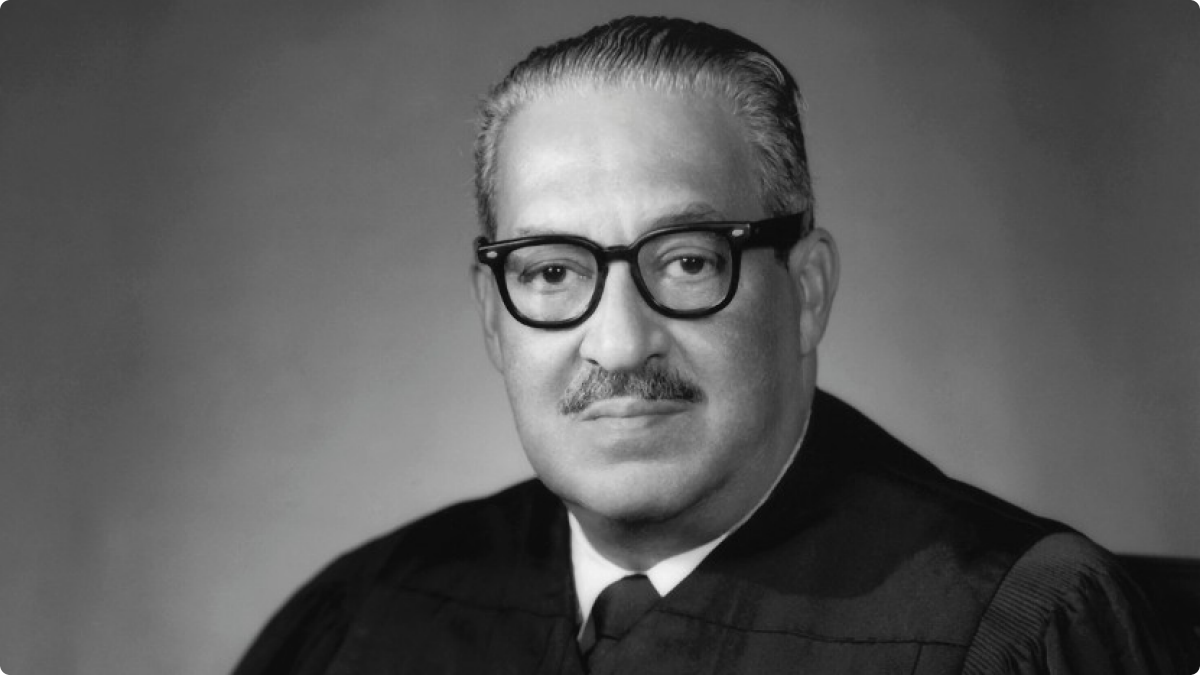
By Mashaun D. Simon, NBCBLK
This week marked the 109th birthday of Thurgood Marshall, the first African-American to be appointed to the highest court in America.
Later this year Marshall, the motion picture focused on the early days of Marshall’s legal career, will be released nationwide. Starring Chadwick Boseman as Marshall, the movie centers around the case against a black chauffeur who is accused of sexually assaulting his white female employer. The movie provides a rare glimpse into Marshall beyond his historic victory of Brown v. Board of Education and his appointment to the Supreme Court.
For those who knew him or have studied him, the film sheds a light on a Marshall they were familiar with.
Nicole Austin-Hillery, director and counsel at The Brennan Center for Justice in Washington, D.C. told NBC News that Marshall’s legal career prior to his appointment was itself a movement.
“As Marshall was taking on these cases of Black men falsely accused of crimes in the South, he was trying to do more than prove their innocence,” she said. “He was trying to change the law so that precedence would be put into play. It was a long term game plan focused on changing the legal system of the future.”
Charles Hamilton Houston, Dean of the Law School at Howard University and Marshall’s mentor, passed Marshall’s legal strategy to him. One cannot understand Marshall without understanding Houston, said Austin-Hillery.
“He taught Marshall to strategically think about law. He pressed the importance of choosing cases very carefully,” she said. ”And how you build a lineage of case law on a series of cases, not just one case at a time. That’s what people don’t know and are missing about Marshall.”
They were strategies, Austin-Hillery points out, that are still alive today.
“When you look at various cases from voting rights to education to the death penalty to gender discrimination — The strategy is to change the legal framework for how these cases are adjudicated; long term legal precedence.”
John A. Powell agrees. Marshall, he said, had a radical vision of integration and of the law.
“He had this vision for transforming society, which I think will be around for a long time,” he said. “There wouldn’t be gay rights, there wouldn’t be the Loving case without Marshall.”
Powell, who is Director of the Haas Institute for a Fair and Inclusive Society at the University of California-Berkley, had the pleasure of meeting Marshall once. He describes Marshall as the bone of the civil rights aspiration of an inclusive society – an aspiration that Powell believes we are still struggling with today.
“Marshall was future-focused. He thought the best way of achieving an inclusive society was through integration and presented himself as being part of the system or within the system while at the same time transforming the system.”
Read the entire story here.


